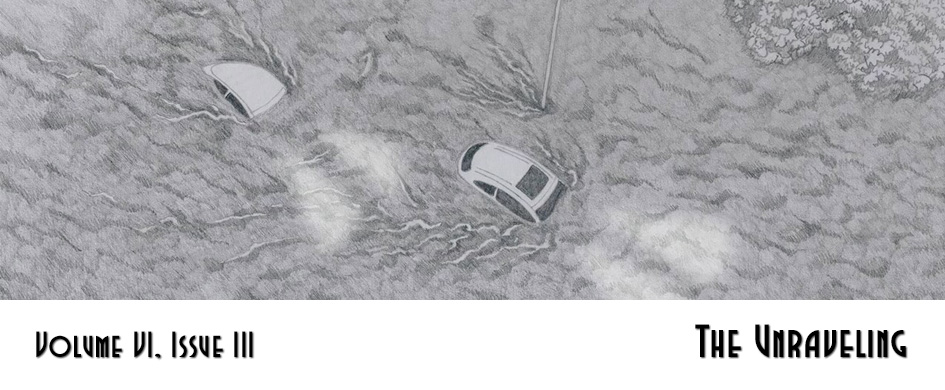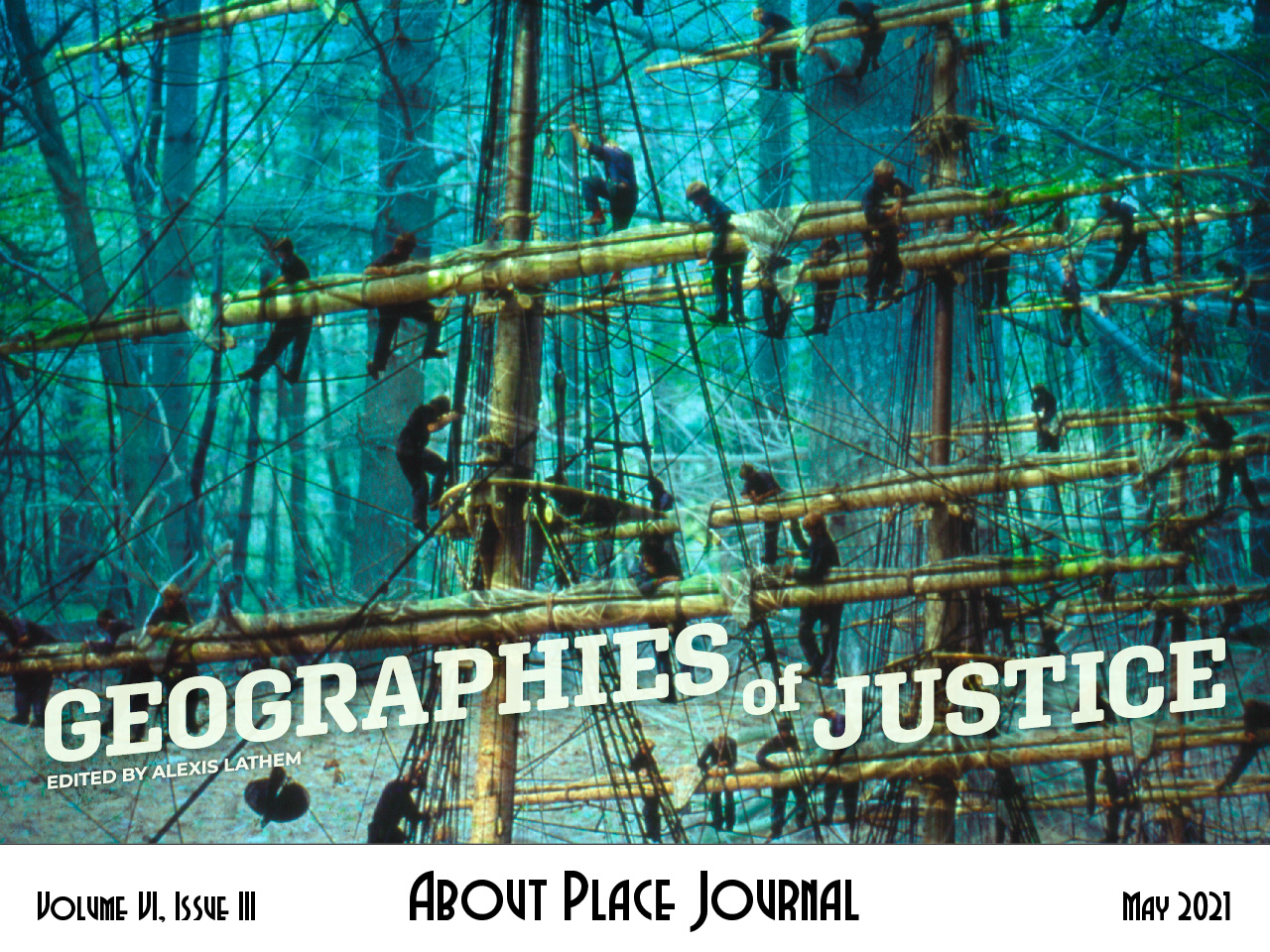You and I, we are powerful beings.
Forget magic. We have spirit. We have mind. We have love.
We can also stand like a stone wall in the middle of the ocean, and refuse the tide safe passage.
But if we do. Beware.
Her advice was unlike any I’d heard before: “When your blood comes, go sit outside, by yourself, under the stars. This is a time of sacredness for women. We need space by ourselves.”
Jerry, a member of the Eastern Band of the Cherokee Nation at the Qualla Boundary, has a voice that sounds like mountain water tastes: there is iron in her, and snow. A matter-of-factness married to a refreshing sense of humor. She’s a weaver, educator, mother, and friend to me, a woman of European descent.
Jerry and I were having coffee in downtown Chattanooga, discussing a poetry project celebrating Cherokee women. I hadn’t told Jerry my whole story yet—but her words cut deep. At that point, I hadn’t bled naturally, monthly, the way women do, for 17 years.
My flow stopped when I was 15, living in Haifa, Israel. That year, I was meant to “come of age” in a religious sense. As a Baha’i, the age of maturity is 15. Your birthday presents a moment of choice: Will you claim this Faith, or choose another way?
My family moved to Israel, in the first place, to serve our Faith—though I really didn’t have a choice, being 11 at the time. But I went with an open heart, remembering the gardens in Haifa and Akko that mirrored paradise, where I could walk under the olive trees and be happy.
But a child knows. I knew. Something wasn’t right. No matter how emerald the grass, how red the petals, how blue-green the sea, something dangerous simmered in the air. A heavy vibration cut into my shoulders, constricted my heart, causing a level of unspoken anxiety I had never felt before.
Things fall apart; the centre cannot hold;
Mere anarchy is loosed upon the world,
The blood-dimmed tide is loosed, and everywhere
The ceremony of innocence is drowned…
Surely some revelation is at hand.
~ W. B. Yeats, The Second Coming
Underlying the “normal” daily routine of school, homework, and sleepovers was a burning fear. We’d hear regular reports of suicide bombings and military reprisals. This drumbeat intensified during Saddam Hussein’s reign in Iraq, when scud missiles were lobbed over the Israeli border and we were issued gas masks.
The land’s erratic pulse raced faster in the weeks leading up to and following September 11, 2001.
That August, I could not sleep. I’d lie awake, night after night, in our eleventh-floor high rise, overlooking Haifa Bay—the northernmost curve of the Mediterranean. From one window, I saw Lebanon. From another, the Shrine of the Báb, a golden temple surrounded by 19 emerald terraces, glowed in the heart of Mount Carmel.
Inside this Shrine are holy bones: the remains of a Messenger who brought news of a Promised One, whose coming is foretold in every religious tradition. What are the lessons these holy ones taught?
“The best beloved of all things…is justice.”
“The earth is but one country and mankind its citizens.”
~ Bahá’u’lláh
Whether you view it in religious terms or not, we are living in end times—the end of a historic cycle of “us versus them.” This also means we are living in beginning times. We are seeing the first light of a big, chaotic family reunion, which will eventually allow us to live as we really are: as brother, sister, kin; in harmony with each other and the earth.
But first, we must consciously reverse millennia-old mindsets and oppressive practices that favor a few at the expense of many.
No wonder there’s so much fear and stonewalling. Change our ways? Hell no.
I grew up surrounded by talk of human oneness. So imagine the disconnect, as a child and teen, living near a literal garden of paradise, where people visit, members of every class and faith, from all over the world—yet situated in a war zone. I saw people of all backgrounds embrace each other. And I also saw people hurt and kill, bully and shun each other.
How could I not feel helpless in the face of so much destruction and hypocrisy?
At night, a desert wind screamed around the corner of my room, buffeting my head as I tried to calm my wild pulse. The wind brought seasonal dust storms called khamseens that coated the city in an eerie yellow smog. But to my young ears, the wind sang of a terror and heartbreak no one else dared speak.
On one of those sleepless pre-9/11 nights, my blood dried up. The cycles that had come regularly since I was 13 were gone, a silent casualty I never mourned.
The devastation of 9/11 was also my 15th birthday. Which I felt selfish for even attempting to claim. That said, it was the day I was meant to come of age, choosing a religion whose core precept is “service to humanity.” How on earth could I serve this dehumanized race?
My answer, unconsciously, was to accept my faith, which felt pure, but to deny my humanness, my womanhood, which felt too dangerous, too bound up with sex, violence, disrespect, death— as if my gender tied me to some cosmic train track, and the train was barreling down.
Protectively, I pulled away from family and friends, drifting like a hungry ghost through long school days and sleepless, heart-pounding nights. I ignored my appetite; lost touch with my body. The second Intifada (Palestinian Uprising) was heating up, and more people were killed daily. Hunger and fatigue settled in with a throbbing ache, dulling all other sensation, especially fear.
In 2012, my family returned to the States to help me heal, and years of post-traumatic disorder and recovery followed. Those were some long, lonely years, wandering in the valley of the shadow. It’s a damning truth: once we reverse Nature’s tides, returning to shore seems almost impossible.
Almost.
if there is a river
more beautiful than this
bright as the blood
red edge of the moon if
there is a river
more faithful than this…
~ Lucille Clifton, poem in praise of menstruation
Fitfully, over the years, my blood has tried to return. Just for a month, here and there, then years of nothing. I tried birth control, which induces regular bleeding, though not ovulation. But it caused my hair to fall out, and never felt like a real solution.
Lack of dietary fat and low body fat were my main stumbling blocks. Fat is the precursor to hormones that signal to a woman’s body: You’re strong enough to carry life. And frankly, that wasn’t true. No matter how confident and competent I seemed in the world, the face and form I returned to at night were not beloved. I still battered myself, and denied my own fullness. Why?
That is a question requiring treatises on the treatment of women to answer. And at the same time, the answer is simple: the world isn’t safe or made for women, and I protected myself, reflexively, by shrinking away.
But by denying my material self, I inadvertently denied the only form of safety that really counts: safety in my own spirited skin. So that’s what I’ve been learning, every day, for about ten years. How to be a refuge. How to carry, lovingly, my own life.
“To live this way is a cycle in itself,
one meant to go on, go on, go on.”
~ Clarissa Pinkola Estés, Women Who Run With the Wolves
Since returning to the States at 15, I’ve moved around a lot, domestically and internationally. School and work were the tangible reasons for these travels. But there was an existential drive at work too. Why root in a world full of pain and injustice? Why roost in a body that will only grow old and die—or be stolen too soon, by illness or some random act of violence?
When I finally put down deeper roots, it was in a place known to history for the Trail of Tears. Everywhere in Chattanooga, there are signs and monuments to this brutal “removal,” in the mid- 1800s, of the Cherokee people from their homeland in the Tennessee mountains to the plains of Oklahoma. Tens of thousands died.
This is the truth of our nation. These fragilely united States were built on the enslaved, uprooted bodies of Black and Indigenous mothers and fathers and children—our unsung founders—who were sacrificed, savagely, by those who claimed their labor and land. These cycles of savagery have not ended, but continue in new and pervasive forms, from poverty and mass incarceration, to Indigenous women murdered without the justice system batting an eye.
No monument or museum can account for the grief we must feel, personally and collectively, for the bones of the innocent, salting the earth. We must reckon with our greed over resources, the plastic wasteland choking our planet. Grief—lamentation—is the first step toward clarity. Why are we fighting so desperately over our own graves? Why are we denying the spirit of unity—the source of our true happiness?
I’ve been happy in Chattanooga, launching myself as a freelance writer, poet, and teacher. I’ve been happier in my body too. And I’ve never cried so much in my life.
Breaking through the rock-like emotions congealed around my ovaries and womb for over a decade, a river of pain—raw with longing, long dammed and denied—poured free. This happened during the 2020 pandemic, when increased solitude gave me no choice but to sit still and look within. And not only look. Act.
Olive oil, avocados, sunflower seeds. I ate the fats so long denied and feared. Black figs, basil, golden tomatoes. I ate fruit and herbs from my own garden, and allowed my body to strengthen, relax.
One day in late November, I went outside, alone, and sat on a hill, under a clear evening sky. A bright half-moon perched over my shoulder.
The Tennessee River lay flat and quiet, wriggling ever so slightly, like a child in sleep. Its silky skin was all kinds of lovely: slate blue, a few strokes of pink, purple-black like the deep places I allowed my mind to go. On that hill, overlooking the river, I touched my forehead to the grass and prayed.
I will not be denied.
I will not deny myself.
I will not abandon myself ever again.
These words came instinctively, urgently, and when I sat up, the world appeared in dazzling truth, as if all the filters had been removed. No need for mind-altering drugs. Just awe, cellular and pure.
Walking through the darkness, I smelled garlic, frying in some other house. A tree, dark red and fully-leafed, glowed behind a streetlamp.
In the bathroom of my friend’s home, I glanced down. And saw a bright red streak.
After years, it had come. I was over the moon.
Do you know how terrifying it is to write this, to share my blood with you?
But what else can I do. Women’s blood is a gift. It is life.
We are life.
Take this from us, and the Earth will rise up in vengeance.
She will be denied no longer.


